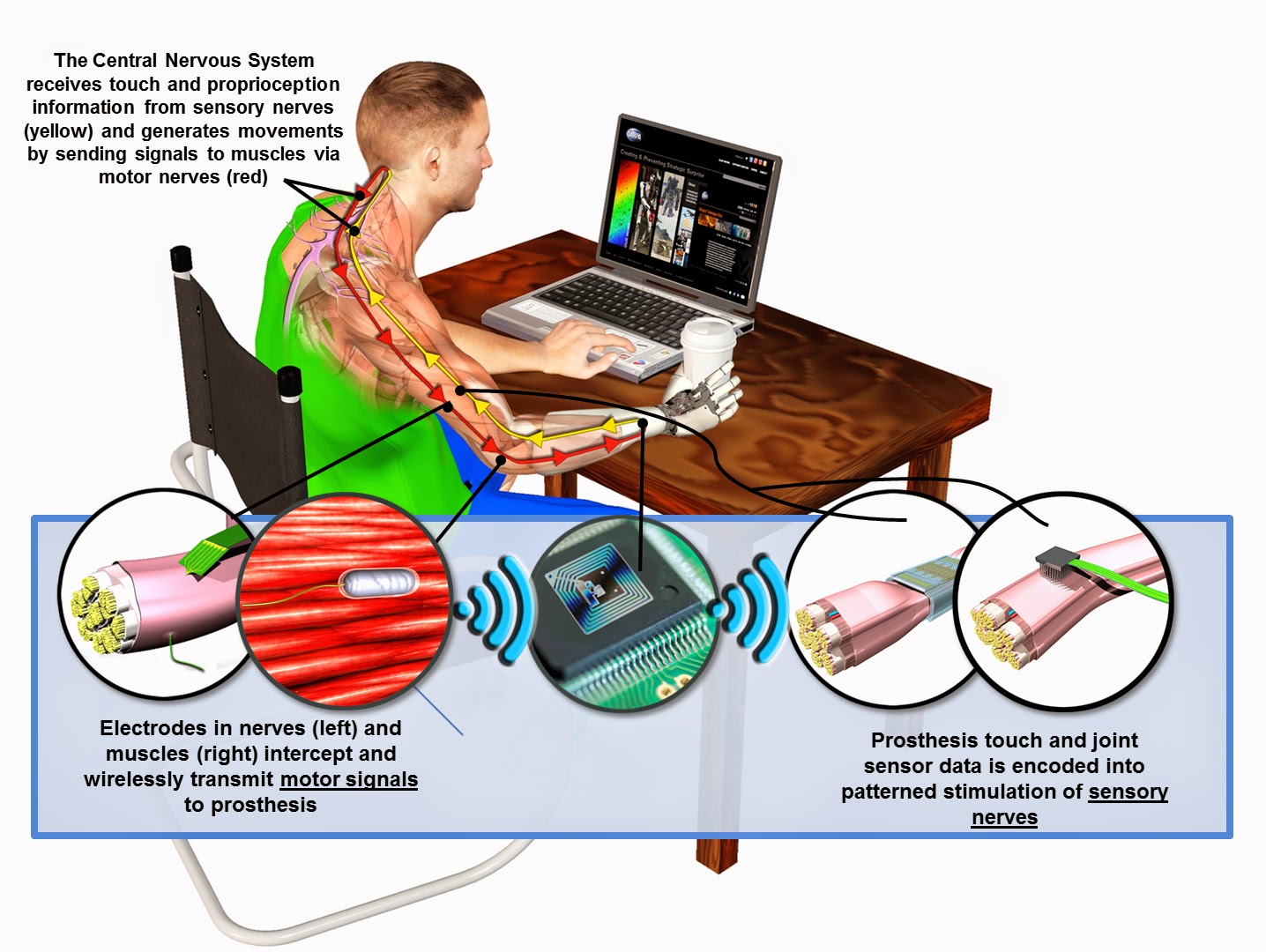Rehabilitation experts at the University of Pittsburgh School of Medicine hope to one day give people with an arm amputation a prosthetic limb that not only moves like a natural one, but “feels” like it, too. They expect such sensation will improve dexterous control of the device and give users greater intuition about what they are doing with their prosthetic.
With funding from the Defense Advanced Research Projects Agency (DARPA)’s Hand Proprioception and Touch Interfaces (HAPTIX) program, Robert Gaunt, Ph.D., assistant professor, Department of Physical Medicine and Rehabilitation (PM&R), Pitt School of Medicine and a multidisciplinary research team from Pitt, West Virginia University and Ripple LLC will begin developing the technology with the aim of being able to test it in patients’ homes within four years.
“Advanced prosthetic limbs that behave like the hand and arm they are replacing have been an unrealized promise for many years largely because until recently, the technologies to really accomplish this goal simply haven’t been available,” Dr. Gaunt said. “To make the most of these new capabilities, we have to integrate the prosthetic into the remaining neural circuitry so the patient can use it like a regular hand that, for example, can pick up a pen, gently hold an egg or turn a stuck doorknob.”
In the 18-month, first phase of the project, the team will recruit five volunteers to try to demonstrate that stimulation of the sensory portion of the spinal cord nerves, which would normally innervate the hand and forearm, can cause the amputee to feel distinct sensations of touch and joint movement in the “phantom” hand and wrist.
They also plan to insert fine-wire electrodes into the forearm muscles of able-bodied volunteers to collect and interpret muscle signals to guide movement of a virtual prosthetic hand to control hand opening and closing, as well as thumb movement. Eventually, the team aims to devise a fully implantable system for home use.
DARPA’s Hand Proprioception and Touch Interfaces (HAPTIX) program aims to develop fully implantable, modular and reconfigurable neural-interface systems that would enable intuitive, dexterous control of advanced upper-limb prosthetic devices. In a major step toward achieving these goals, DARPA has awarded prime contracts for Phase 1 of HAPTIX
Read more »
